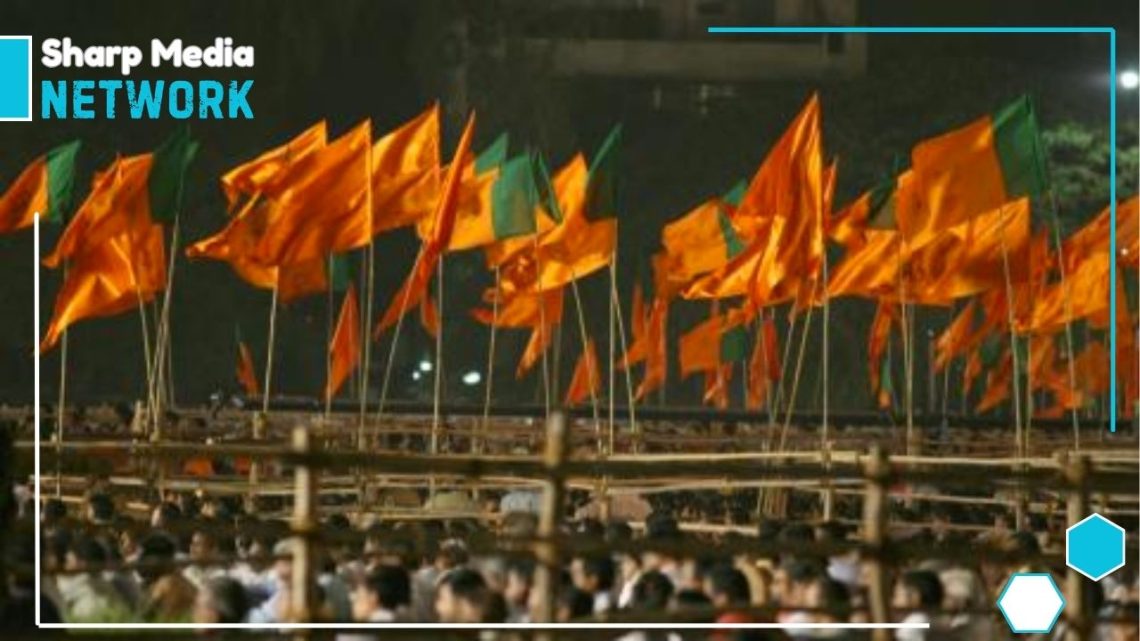
Blood-Red Extremism: Hindutva’s Global Threat Unfolds
February 4, 2025 Off By Sharp MediaAs extremist Hindutva ideology spreads beyond India’s borders, its violent rhetoric and military ambitions pose a growing threat to global security, religious pluralism, and diplomatic relations.
Hindutva, an extremist ideology rooted in the belief that India should be a Hindu-only nation, is no longer just a domestic concern—it has become a transnational threat. Recently, Yati Narsinghanand, a controversial priest and Mahamandaleshwar of Juna Akhara, made headlines by sending a letter to Indian Prime Minister Narendra Modi, written in his own blood. The letter urged military intervention to protect Hindus in Bangladesh and Pakistan, a move that signals a dangerous escalation in Hindutva’s reach and influence.
Narsinghanand’s act of writing the letter in blood is far more than just a plea for action—it is a symbolic call for military aggression disguised as religious protection. His message is clear: Hindutva is now seeking to impose its extremist agenda on neighboring countries under the pretext of safeguarding Hindu communities. This is a disturbing reflection of how India’s political leadership, under the Bharatiya Janata Party (BJP) and Prime Minister Modi, has emboldened radical elements of the Hindutva movement, effectively turning India into a hotbed of religious militancy masquerading as nationalism.
The call for military action against Bangladesh and Pakistan is not an isolated incident. It echoes historical patterns of violence and persecution, from the 2002 Gujarat riots to the more recent communal clashes in Delhi. These violent events, often fueled by extremist rhetoric, have left deep scars in the region. Narsinghanand’s letter, which advocates war, is a chilling reminder of the potential for further violence, especially as these extremist views gain traction within India’s political discourse.
The reach of Hindutva is not confined to India alone. The ideology is spreading within the global Hindu diaspora, particularly in countries like the United States, the United Kingdom, and Canada. These diaspora communities, emboldened by the rise of Hindutva in India, are influencing Western politics and spreading Islamophobic narratives that foster division and conflict. The implications are far-reaching, as rising Hindutva extremism could create tensions not only within India’s borders but across the globe.
The blood-written letter is a signal of growing hostility, not just towards Pakistan and Bangladesh, but towards Muslims worldwide, particularly in the Arab world, where the Hindu diaspora has significant influence. As Hindutva gains ground, the potential for a backlash against India’s expatriates in these regions increases, putting both diplomatic relations and economic interests at risk.
What started as a fringe ideology is now becoming a blueprint for regional destabilization. The normalization of hate within India’s political sphere—bolstered by extremist factions—poses a serious threat to global security. Modi’s administration has transformed India from a democratic republic into a theocratic authoritarian state, where policies are increasingly shaped by the dictates of religious extremists.
The world cannot afford to overlook the unchecked rise of Hindutva. What begins as hate speech can quickly turn into violence, as seen in recent years. If the international community does not act swiftly, it may soon face the repercussions of a much larger and more dangerous threat—one that could destabilize the region and threaten the peace and security of the world.

